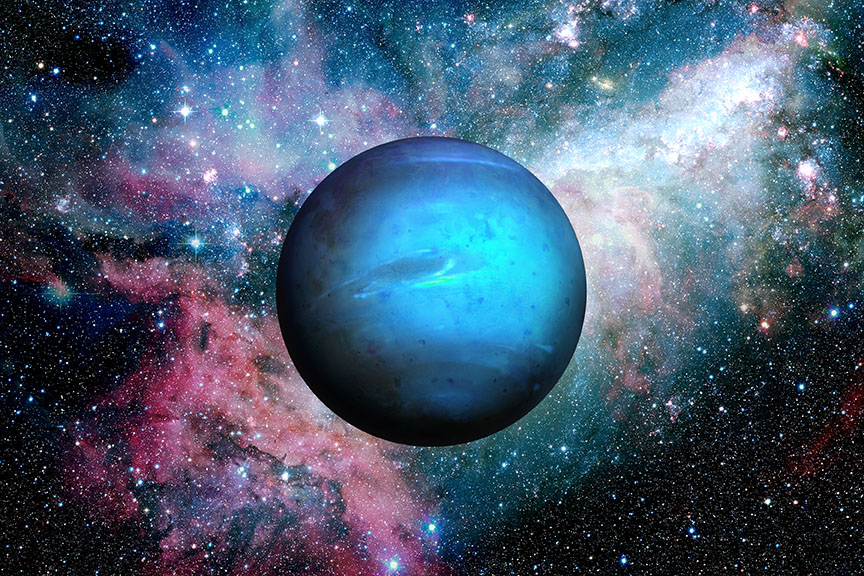

Neptune is the eighth and farthest planet from the Sun in our solar system. It is a gas giant with a blue atmosphere. Neptune is the fourth largest planet in our solar system, after Jupiter, Saturn, and Uranus.
Neptune is named after the Roman god of the sea. It was discovered in 1846 by Johann Galle and Heinrich d'Arrest. Neptune was the first planet to be discovered using mathematics.
Neptune has a very strong magnetic field. It is the strongest magnetic field in our solar system, even stronger than Jupiter's. Neptune's magnetic field is thought to be caused by its rapid rotation.
Neptune has a system of rings, but they are much fainter than the rings of Saturn. Neptune's rings are thought to be made up of dust and small particles of ice.
Neptune has 14 moons, the largest of which is Triton. Triton is the only moon in our solar system that orbits its planet in the opposite direction of its rotation.
The planet Neptune is the eighth planet from the sun.

There are no different forms of the word "planet Neptune".
The name of the planet Neptune comes from the Roman god Neptune, the god of the sea. Urbain Le Verrier, the French astronomer who predicted the existence of Neptune, named the planet after Neptune because of its blue colour, which is similar to the colour of the sea.
The word "Neptune" comes from the Latin word "Neptunus," which is the god of the sea in Roman mythology. The Latin word "Neptunus" is derived from the Proto-Indo-European root *nep-," which means "wet.".
What is Neptune?